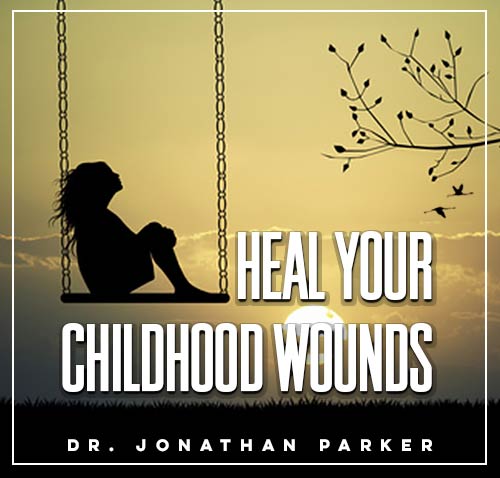Healing Childhood Memories

Looking for more amazing products? Check out our online store and explore our collection here! Happy shopping!
Before diving in, please note: This post is for informational purposes only. If you’d like to know more about how we approach topics, feel free to check out our friendly Disclaimer Page.
Hey there, amazing readers! 
We’re committed to delivering quality posts, and your support (even just sticking around despite the ads) means everything to us. So, bear with us, and thanks for helping us keep the good vibes rolling. Now, on to the fun stuff!
TRANSLATE BUTTON AT THE END OF THE ARTICLE
A Quick Overview
Healing childhood memories is a significant aspect of personal growth and emotional well-being.
Childhood experiences have a profound impact on our adult lives, shaping our beliefs, behaviors, and relationships.
Recognizing the effects of these memories and learning how to process and heal from them is crucial in fostering a healthier mindset and outlook on life.
This article will delve into the importance of healing childhood memories, strategies for processing childhood trauma, the role of therapy in the healing process, and the significance of self-compassion and forgiveness in this journey towards emotional healing.
Understanding the Importance of Healing Childhood Memories
Healing childhood memories is essential because these early experiences often form the foundation of our beliefs, emotions, and behaviors.
Unresolved childhood traumas can lead to negative patterns in adulthood, affecting our relationships, self-esteem, and overall well-being.
By addressing and healing these memories, we can break free from the cycle of pain and create a more positive and fulfilling life for ourselves.
Healing childhood memories is not about erasing the past but about integrating these experiences into our present self with a sense of understanding and compassion.
Recognizing the Impact of Childhood Experiences on Adult Life
Childhood experiences, whether positive or negative, play a significant role in shaping our adult personalities.
Traumatic events or neglect during childhood can leave emotional scars that impact our relationships, decision-making, and mental health in adulthood.
These experiences can create deep-seated beliefs about ourselves and the world around us, influencing our behavior in ways we may not even realize.
By recognizing the impact of childhood experiences on our adult lives, we can begin to understand the root causes of our struggles and work towards healing and growth.
Unpacking Emotional Baggage from the Past
Emotional baggage from childhood can weigh heavily on our present lives, affecting our ability to form healthy relationships, manage stress, and regulate our emotions.
Unpacking this emotional baggage involves exploring the memories, beliefs, and emotions that were formed during childhood and understanding how they continue to influence us today.
By acknowledging and processing these emotions, we can begin to release the hold they have over us and create space for healing and growth.
It is essential to approach this process with patience, self-compassion, and a willingness to confront difficult emotions.
Strategies for Processing and Healing Childhood Trauma
Processing and healing childhood trauma requires a combination of self-reflection, emotional expression, and therapeutic support.
Some strategies for addressing childhood trauma include:
Journaling: Writing about your thoughts and feelings can help you process and release pent-up emotions.
Mindfulness and meditation: Practicing mindfulness can help you stay present and cultivate self-awareness.
Therapy: Working with a therapist can provide a safe space to explore your past, identify patterns, and learn healthy coping mechanisms.
Creative expression: Engaging in art, music, or other creative activities can help you express emotions that are difficult to put into words.
By combining these strategies, you can begin to unravel the complex emotions and beliefs tied to your childhood trauma and work towards healing and resolution.
The Role of Therapy in Resolving Childhood Wounds
Therapy plays a crucial role in resolving childhood wounds by providing a safe and supportive environment for exploring past experiences, processing emotions, and developing coping strategies.
A therapist can help you gain insight into the impact of childhood experiences on your adult life, challenge negative beliefs, and learn healthier ways of relating to yourself and others.
Therapy can also help you build resilience, self-compassion, and emotional regulation skills that are essential for healing childhood wounds and creating a more fulfilling life.
Cultivating Self-Compassion in Healing Childhood Memories
Cultivating self-compassion is an essential part of healing childhood memories, as it involves treating yourself with kindness, understanding, and acceptance.
Many individuals who have experienced childhood trauma may struggle with self-criticism, shame, and low self-esteem.
By practicing self-compassion, you can learn to acknowledge your pain without judgment, validate your emotions, and nurture yourself with care and empathy.
Discover "SUPERFOODS: The Key to Health and Balance
"
Cultivating self-compassion is not about excusing harmful behavior but rather about recognizing your inherent worth and deservingness of love and healing.
Building Resilience Through Reflecting on the Past
Reflecting on the past is a powerful way to build resilience and inner strength.
By revisiting and reevaluating childhood memories, you can gain new insights, perspectives, and understanding of your experiences.
Reflecting on the past allows you to identify patterns, triggers, and coping mechanisms that may no longer serve you and make conscious choices to change them.
Building resilience through reflecting on the past involves embracing your vulnerabilities, learning from your experiences, and developing a sense of empowerment and agency over your life.
Letting Go of Resentment and Anger Towards Childhood
Letting go of resentment and anger towards childhood is a crucial step in the healing process.
Holding onto negative emotions from the past can keep you stuck in a cycle of pain and prevent you from moving forward.
By acknowledging and releasing feelings of resentment and anger, you can free yourself from the grip of the past and create space for healing and growth.
Letting go of these emotions does not mean condoning past actions or denying your pain but rather choosing to release the emotional burden that no longer serves you.
Embracing Forgiveness in the Healing Process
Embracing forgiveness is a transformative aspect of the healing process, as it involves letting go of bitterness, resentment, and the desire for revenge.
Forgiveness does not mean forgetting or excusing harmful behavior but rather releasing the emotional attachment to past wounds and choosing to move forward with compassion and understanding.
By forgiving those who have hurt you, including yourself, you can break free from the cycle of pain and create space for healing, peace, and personal growth.
Embracing forgiveness is a powerful act of self-love and empowerment.
Creating New Narratives for Healing Childhood Memories
Creating new narratives for healing childhood memories involves reframing your past experiences in a more compassionate, empowering light.
Instead of seeing yourself as a victim of circumstances, you can choose to view yourself as a survivor who has overcome adversity and grown stronger as a result.
By rewriting your story with a focus on resilience, growth, and self-compassion, you can transform the way you relate to your past and create a more positive and empowering narrative for your present and future self.
Practicing Mindfulness to Heal Childhood Wounds
Practicing mindfulness is a powerful tool for healing childhood wounds, as it involves staying present, observing your thoughts and emotions without judgment, and cultivating self-awareness.
Mindfulness allows you to tune into your inner experiences, notice how past traumas may be influencing your present reactions, and choose how you respond to them.
By practicing mindfulness, you can develop greater emotional regulation, self-compassion, and resilience in the face of difficult memories and emotions.
Mindfulness can help you create a sense of peace, acceptance, and healing in your relationship with your past.
Finding Closure and Peace in Revisiting the Past
Finding closure and peace in revisiting the past is a transformative journey towards healing childhood memories.
By revisiting and processing past experiences with awareness, compassion, and self-reflection, you can gain a deeper understanding of yourself, release emotional burdens, and create space for growth and healing.
Finding closure does not mean erasing or denying your past but rather making peace with it, accepting what cannot be changed, and choosing to move forward with a sense of forgiveness, empowerment, and self-love.
In finding closure, you can reclaim your story, honor your resilience, and embrace a brighter, more hopeful future.
Conclusion
Healing childhood memories is a profound and transformative journey towards personal growth, emotional well-being, and self-compassion.
By recognizing the impact of childhood experiences on our adult lives, unpacking emotional baggage from the past, and embracing forgiveness and self-compassion, we can break free from the cycle of pain and create a more positive and fulfilling life for ourselves.
Through reflection, resilience, and mindfulness, we can find closure and peace in revisiting the past, creating new narratives that empower and uplift us in our journey towards healing and growth.
Remember, healing is a process, and it requires patience, self-compassion, and a willingness to confront and release the emotions that no longer serve us.

The Enlightenment Journey is a remarkable collection of writings authored by a distinguished group of experts in the fields of spirituality, new age, and esoteric knowledge.
This anthology features a diverse assembly of well-experienced authors who bring their profound insights and credible perspectives to the forefront.
Each contributor possesses a wealth of knowledge and wisdom, making them authorities in their respective domains.
Together, they offer readers a transformative journey into the realms of spiritual growth, self-discovery, and esoteric enlightenment.
The Enlightenment Journey is a testament to the collective expertise of these luminaries, providing readers with a rich tapestry of ideas and information to illuminate their spiritual path.
Our Diverse Expertise
While our primary focus is on spirituality and esotericism, we are equally passionate about exploring a wide range of other topics and niches 

To ensure we provide the most accurate and valuable insights, we collaborate with trusted experts in their respective domains 
Our blog originally focused on spirituality and metaphysics, but we’ve since expanded to cover a wide range of niches. Don’t worry—we continue to publish a lot of articles on spirituality! Frequently visit our blog to explore our diverse content and stay tuned for more insightful reads.
Hey there, amazing reader! 
Check out our store here and take a peek at some of our featured products below! Thanks for being awesome!

















